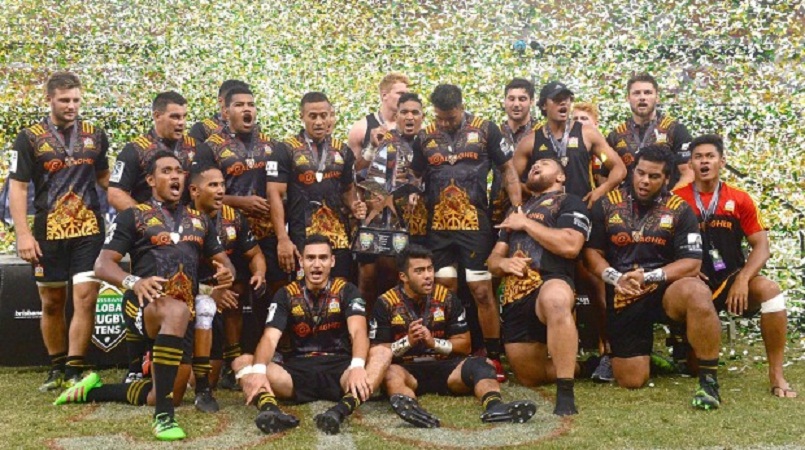
Duco Events Australia chief executive Rachael Carroll has given her assurance rugby's Brisbane Global Tens will remain in Queensland amid talks of a swap with the Auckland Nines next year.
The NRL want to negotiate a deal with Duco, the brains behind both the Auckland Nines and Brisbane Global Tens, to bring the rugby league version from New Zealand to Australia.
The problem, however, lies in the fact the Global Tens has a four-year agreement to be played in Brisbane.
Despite the belief a rugby tournament would be better suited across the ditch, Carroll said the success of the weekend's inaugural Global Tens event gave her no reason to see why it should be moved.
"We've got a four-year contract with the Queensland State Government and with Brisbane City Council for the event to happen here," Carroll said. "We've seen that Queenslanders, despite the heat, have come out and have supported this event. We're moving forward to continue in Queensland.
"All I've been focused on 100 per cent is delivering a superb inaugural Brisbane Global Tens and that is what we've done."
Carroll all but confirmed there would be different teams next year outside of the five Australian and five New Zealand Super Rugby franchises and that an expansion was on the cards.
Toulon, Samoa, the Blue Bulls and Wild Knights rounded out the four other teams but there is no guarantee all will be back next year.
Carroll also flagged the possibility of a Fijian team joining the tournament next year.
"We have the opportunity to change, grow the internationals, so that is what will keep it fresh," Carroll said. "It's not the same teams every year. The crowd was very much adopting them [foreign teams] as their second team and that has been the delight of the tournament.
"What the Panasonic Wild Knights have achieved over this tournament – this tournament is being broadcast into Japan – we'll be interested to see the response there. There's a whole Top League of teams over there as a first point.
"We've had overwhelming feedback saying we'd love to see Fiji in this tournament and let's look at the UK as well. There are some challenges in terms of sporting calendars and when these competitions all land."
The benefit of expanding to 16 teams would improve the less than ideal pool system at present.
Two pools have four teams while another two have only three, creating a noticeable advantage for teams in the smaller pools given the first two from each progress to the quarter-finals.
"The 14-team format may not be absolutely ideal," Carroll said. "I still suggest that the best team here on the day will win; 16 teams is something that we'll have a good, hard look at. I think that we'll all find we'll get increasing interest out of international markets."
While the crowd wasn't as big as the Sydney Sevens the week before, a healthy number turned up to witness what was a well-organised tournament overall.
The problem was the lack of Australian teams late in the day, with the Waratahs, Rebels and Brumbies eliminated before the quarter-finals.
Even the Reds and Force didn't make it into the semi-finals, which were headlined by three New Zealand teams in the Chiefs, Crusaders and Highlanders. The Chiefs beat the Crusaders in the decider.
An even bigger problem was the heat, with temperatures soaring to 38C on a day that took it out of players and officials.
"It's hot in those seats, 100 per cent," Carroll said. "Probably not as many walk-ups as we would like but delivering just under 30,000 people, [at a] two-day event, and close to 60,000 over the two days is just a fantastic outcome for a year-one event and certainly where we wanted to be to kick this tournament off.
"Even some of the sceptics, and there have been a few on this journey ... have done a 180 [degree flip] once they have seen the product on the field."
Photo: Getty Images (The Chiefs celebrate their victory after the Brisbane Global Tens final against the Crusaders).
